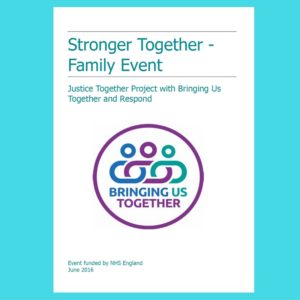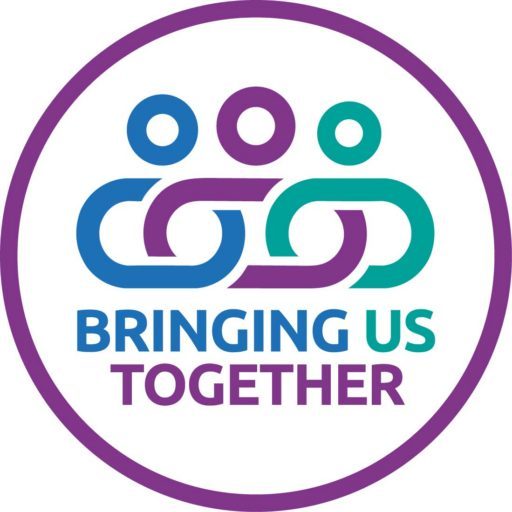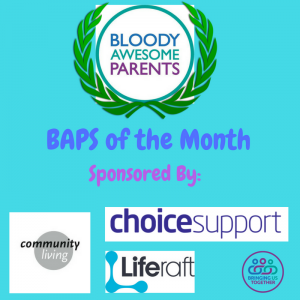What are the challenges in the system [2]
How do children with Autism and/or Learning Disabilities described by their families using words like “loving, kind, caring, funny, gentle giant, sense of humour, makes me laugh” end up in crisis and within the setting of an Assessment and Treatment Unit?
What are the Challenges in the System?
We brought families together and asked them.
Yesterday we looked at the following challenges in the system
- Social Care and Local Services
- Special Educational Needs issues
- Personalisation
- Legal Support and Information
Today, we want to look at four more challenges in the system
- Parents seen as the problem
- Fuller (non-medicalised) understanding of Learning Disability and Autism
- Concern over the use of the Police and Criminal Justice System
- Health and Emotional Wellbeing

Parents seen as the problem
- Hospitals and treatment units often see parents as part of the problem.
- Resulting in parents feeling that they are treated with contempt. Parents also say they are not listened to and experience feelings of helpless, out of control and powerless, often resulting in a deterioration in their own mental health, physical health and emotional well-being
- Too much restriction on parents visiting their young people in hospital settings, or phone calls. Lack of contact with parents adds to the trauma for the young person and distressful behaviour escalates.
- Distancing of parents.
- Blame culture on parents
- Parents pushed out of decision making. Little understanding of their perspective sometimes leading to post-traumatic stress as a result of their child being away from them
Recommendations
- Courses for practitioners and providers in the family journey and how the systems and services add to the complexities of life. Rolled out across the country.
- Courses for parents to develop strategies around meetings, understanding of jargon and the law
- Better staff management training in awareness around family life and valuing families as the expert
- Parents encouraged to be Experts by Experience to raise standards and expectations of care staff
- True co-production and families involved at all stages
- Parents having someone with them to attend meetings
- Each provider to establish and support an externally facilitated parent forum to help share experiences and bring voices together
Fuller (non-medicalised) understanding of Learning Disability and Autism/ASD
- There needs to be a less medical approach and a developmental understanding
- It is often not about a mental illness and yet the person can find themselves sectioned and beyond the Human Rights Act
- Trauma history and PTSD are not considered as being part of the issue
- NICE guidelines for Autism and ASD are not referred to and parents unaware of them
- Autism should be understood and treated in its own right – it is not a mental health issue and often there is not a more general learning disability
- Challenging behaviour is often misunderstood and may be as a result of a misunderstood health need, for example being in pain. The behaviour is usually a means of communication, although rarely understood or managed on this basis
- Autism being treated as a mental health difficulty
- Lack of training in Autism for service groups such as GPs, the Police, the Prison Service and A & E staff
Recommendations:
- Early intervention including sensory processing therapy for those with sensory problems enabling those around to understand the individual
- NICE Guidelines for Autism (https://www.nice.org.uk/guidance/qs51) followed and adhered to
- Autism must be classified in its own right – it is not a mental health issue and often a learning disability is not associated with it.
- Staff trained to understand the sensory needs and need for structure/understand the way that people with autism learn and take on information e.g. using visual cues about what is going to happen next
- Employing people who are compassionate and care about disabled people
- Training to be offered by people with lived experience and who are on the autistic spectrum. Eg Experts by Experience in Oxford are training professionals giving them a clear understanding of people with autism. They are also very articulate about the mental health needs of people with autism
Concern over use of the Police and the Criminal Justice System
- There were several reports of the police being used as a first option in a crisis for containment – this was often felt to be totally inappropriate
- People can find themselves in police cells, charged and going through the Criminal Justice System because no one has recognised their autism or learning disability
Recommendations
- The police to have specific Autism training that includes case studies and opportunity to work on solutions and alternatives
- Alternatives to being held in custody in a cell that will decrease the anxiety caused by being held, and be less frightening, through involvement of a doctor and mental health practitioner with experience of dealing with ASD and Learning Difficulties
Mental Health and emotional well-being
- Lack of emotional and practical support; the need for more support around behaviour at an early stage and how to manage distress and anxiety
- The real life experience was that there is little support for families; we need to empower families early on (at the point of diagnosis). Examples such as the Parent Expert Programme should be used as models.
- Families need support to become resilient – this might be through bringing people together, creating supportive networks, resilience workshops, etc.
- Families need emotional support to facilitate emotional well-being and good mental health in themselves and in their young people and loved ones.
- Families need straightforward access to information and rights and support to use this. Information on websites, helplines, independent well trained advocacy and the justice circle model. Information needs to be available in a range of ways as older people are not as au fait with technology as the younger generation (Ofcom 2015)
- Particular support and attention leading up to education transitions and other life changes
- The recognition that school breakdowns are often the starting point of things spiralling downhill towards ATU admission.
- Families not being offered a circle of support (Justice Circles), parent forum or help line to ring for extra support.
- Lack of services and experienced staff available when family hits crisis. No emergency respite services to offer appropriate help other than just the use of the Mental Health Act.
- Parents reaching crisis point and then being unsupported around the point of crisis. Requesting help and support and then finding that the solution is that their young person is to be sectioned
- A common theme was that parents feel too scared to ask for the help they need to get their loved ones back home; some simply not sure who to ask. And then others say they wished they had never asked for help in the first place
“In hindsight would have kept him at home as the last 8 months have had crippling consequences on her marriage. And at the moment Mum hates life and she feels that if things go downhill or the ‘revolving door’ situation was to happen it would literally finish her off. Mum can’t go to counselling as she is not emotionally up to it.”
Recommendations
- Investing in early prevention – no one can last long with little sleep and extreme stress
- Proactive support for families long before the point of breakdown and crisis
- Working with families as early as possible in their child’s life to build resilience
- Crisis specific helpline offering guidance and therapeutic counselling rather than generic helplines
- Crisis mental health teams that come out and support the family during the crisis
- More empathy for the family members. Better carers assessment to support the family emotionally and financially especially when their loved ones are out of area.
- Resilience courses to empower parents and opportunities for bringing parents together through training, workshops, information sessions, peer support to build confidence and knowledge. Workshops in developing strategies around meetings, understanding jargon, the social model and the law such as Partners in Policy Making
- The need to implement/uphold Human Rights over and above the, sometimes inappropriate, use of the MHA.
Tomorrow we will be looking at the following challenges:
- The complaints system
- Care & Treatment Reviews
- Medication
- Staffing and Assessment Treatment Units
- The Discharge Experience
 Stronger Together: This is a report from our weekend with families. It talks about what families thought the issues were, it also looks at the possible solutions and recommendations from families.
Stronger Together: This is a report from our weekend with families. It talks about what families thought the issues were, it also looks at the possible solutions and recommendations from families.
Next Event:
We will be holding another event for families in June. To find out more, click here
Mum to three great kids, each with a different SEN.
Transplanted from the NW to the SE.
Co-founder and Director of Bringing Us Together







